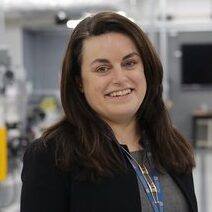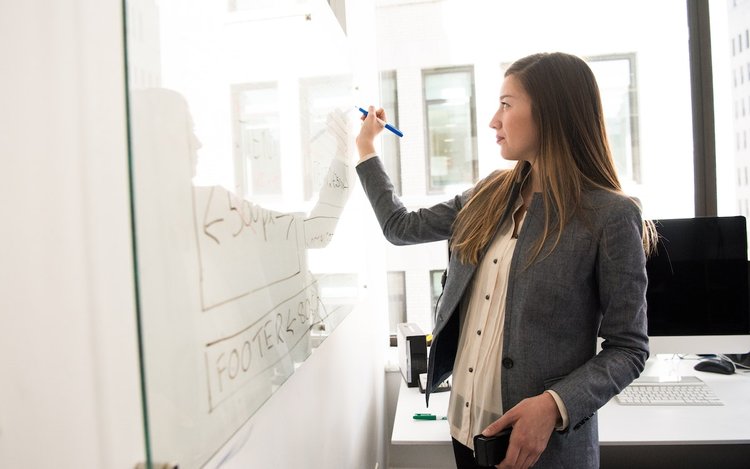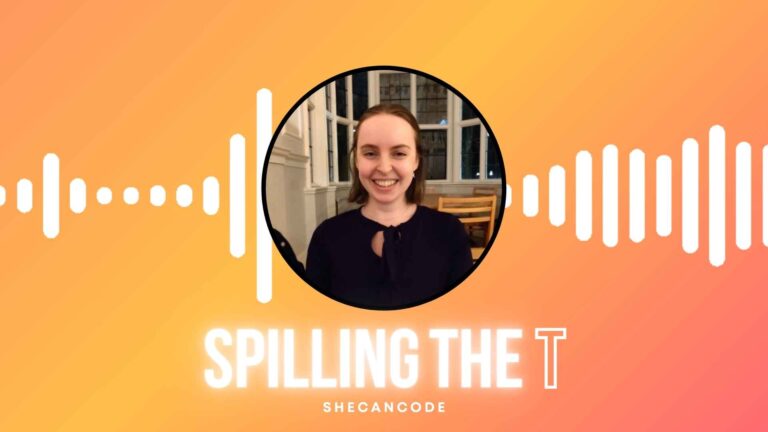The Teach in FE campaign hopes to encourage working professionals to share their knowledge and inspire the next generation.
In this article, we hear from three female engineers turned FE teachers, who are inspiring the next generation of talent in the sector.
They discuss why they decided to share their skills through FE teaching and why other industry professionals should consider doing the same, and how they’re inspiring more women into the sector.

JENNA SABERTON
Jenna Saberton, aged 38, from The Cornwall College Group started teaching in Further Education (FE) in 2022. Jenna worked as a manufacturing engineer for over a decade. Jenna believes her industry experience puts her in the best position to share key skills and knowledge with people wanting to join the sector.
WHY DID YOU DECIDE TO SHARE YOUR SKILLS THROUGH FE TEACHING?
I decided to become a Further Education (FE) teacher after having my children. I wanted a role where I could share my existing industry skills and experience with others while getting a better life/work balance. Fortunately, part time and flexible contracts are readily available, so I could continue to work in the industry I love while sharing my skills in FE. I really enjoy being able to share my skills in this way and it’s exciting to be inspiring the next generation of engineers.
WHY SHOULD OTHERS CONSIDER FE TEACHING?
I worked as a manufacturing engineer for 12 years and learnt so much from my time in industry. Some of the key skills I learnt in the workplace such as communication, IT skills, project management and problem solving are really transferable and put me in good stead for teaching in FE.
These skills allowed me to pass on practical, real life skills through my teaching, and I have relished taking the learners outside the classroom and into workshops and on-site environments so that they can get hands-on experience in their field. It’s a pleasure to be able to share my industry experience with the next generation and give them real life scenarios and examples that help bring the theory to life.
I also love the support that I have gotten from my college, as they have recognised my practical experience whilst also giving me the necessary training to be a better teacher. You don’t always need prior teaching qualifications or an academic degree to start teaching in further education and can also complete teacher training on the job, meaning you can begin earning straight away.
WHAT MORE CAN BE DONE TO ENCOURAGE WOMEN AND GIRLS INTO ENGINEERING?
I think educating women and girls about the industry and the opportunities for them in the sector from a young age is really important. Children start to think about gender specific roles at quite a young age, and these expectations can carry through to adulthood. Therefore, it is important to showcase female role models within the industry at every stage of a women’s education from primary school through to teaching young and adult learners at FE. We need to ensure there are no gender specific role expectations and that everyone feels free to be whatever they set their minds to.
Through teaching in FE I like to think I’m providing women of all ages with a role model from the industry. It comes down to that great quote: ‘If you can’t see it, you can’t be it’. I have gone into my children’s primary school to teach STEM activities at after-school clubs and I believe if more female engineers do this, it could inspire more young girls to be open to a career in STEM.
We can all play a role in tackling gender stereotypes and I’d encourage other women working in STEM to consider how they can share their skills and experience with the next generation whether that be through teaching part time in FE, or volunteering in other education settings.

DONNA GREEN
Donna Green, aged 53, from the Isle of Wight College has been a Further Education (FE) teacher for 11 years. After 8 years in industry, Donna decided to share her skills through teaching in FE. She’s also advocating for more innovative and sustainable practices within the industry, while training the next generation of engineers.
WHY DID YOU DECIDE TO SHARE YOUR SKILLS THROUGH FE TEACHING?
I always wanted to be an engineer from a young age, but was told “it is a boy’s job”. After working in administration until my mid-30s, I defied expectations and retrained as a computer-aided designer at an electrical engineering company, specialising in CAD design and three dimensional models.
After 8 years working as a design engineer as well as studying for my higher diploma, the Head of the Engineering Department at my college asked me if I had ever thought about Further Education (FE) teaching. I jumped at the chance. I’ve always been motivated by the opportunity to try something new and inspired by world events such as COP26 and the need to create a more sustainable future.
I have a passion to instil that into our learners so that they make responsible choices in their own future employment.
WHY SHOULD OTHERS CONSIDER FE TEACHING?
Teaching in FE won’t be for everyone, but if you do take it on and the shoe fits, it’s a lovely shoe to wear.
What I love about FE is the learners have chosen to specialise in engineering and are dedicated to learning so they can build their career in the sector. You can see that joy when they realise they are studying something that they are truly interested in. Coming from a career in industry, my skills are more valuable than I realised, and seeing learners respond well to my knowledge and real-life examples is very empowering.
If you are interested in teaching in FE, I would wholeheartedly recommend giving it a try! I have 11 years of fond memories seeing learners that I have taught excel in their careers. I vividly remember waving goodbye to a young lady, now 22, who I taught since she was 17. She secured an apprenticeship and went on to complete a Higher National Diploma. I got to see her graduate after she left my classroom. This was a proud moment for me.
WHAT MORE CAN BE DONE TO ENCOURAGE WOMEN AND GIRLS INTO ENGINEERING?
I think we could do more to showcase the wide range of roles available in the engineering sector, not just to more women and girls, but all potential adult learners and young people wanting to enter the sector.
It is crucial that we as engineering professionals capture the imagination of young people and consider how the different elements of engineering can speak to their own field of interest.
This is why real world industry skills are so important. You can use your scope of knowledge from the sector and share real world examples to better engage your learners. I always try and discuss how engineering is related to music, for example, or in the development of Kevlar that is used in lining jeans for comfort when riding a motorcycle. Even make-up or working on film sets includes some degree of engineering – the field can become a more appealing option if we widen our idea of what engineering encompasses.

ROSA WELLS
Rosa Wells, aged 42, from University College Birmingham has been a Further Education (FE) FE teacher for 18 years. Since becoming an FE teacher, Rosa says her proudest achievement is training some of the engineers who installed lighting and carried out building maintenance for the Nightingale hospitals during Covid.
WHY DID YOU DECIDE TO SHARE YOUR SKILLS THROUGH FE TEACHING?
Growing up, I was fascinated by planes and spaceships and knew from a young age I wanted to be an aerospace engineer. I joined the engineering industry after completing my A-levels and landed a job with Lucas Aerospace, who manufacture the electronic engine control systems for Rolls-Royce.
After working for the company and travelling abroad for research, I decided I wanted a change. I was inspired by my grandmother and decided to share my skills through Further Education (FE) teaching and help prepare the next generation.
WHY SHOULD OTHERS CONSIDER FE TEACHING?
I love the flexibility of the role, which has allowed me to teach part-time in FE alongside my current job and change lives without changing my career. I have now moved into a full-time role in education and have recently been appointed as FE College Principal at University College Birmingham giving me the opportunity to invest in industry standard learning spaces and design engineering courses. With part time or flexible contracts always readily available, you can continue to work in the industry you love while sharing your skills in further education. Training on the job means you can continue to earn throughout.
However, the most important aspect of FE teaching is of course the learners. It was a privilege to support our engineering learners as they worked for the NHS during the pandemic. We had apprentices involved in designing and manufacturing ventilators, installing lighting for the Nightingale hospitals and working on building maintenance within NHS Hospitals.
Knowing you’re changing learners’ lives, getting to know them, hearing about the challenges they’ve faced and what they want to achieve, has been brilliant. It’s also great that lessons don’t just take place in the classroom. Instead, I love that teaching in FE is varied and can take place in workshops, on-site or anywhere that allows learners to get hands-on experience in their field, reflective of the real world working environment they would be moving onto.
WHAT MORE CAN BE DONE TO ENCOURAGE WOMEN AND GIRLS INTO ENGINEERING?
It is so important to support education providers to better understand what engineers do so that we excite girls at a young age and encourage them to stay engaged with science.
In tandem with this, we need to ensure that national campaigns and initiatives that promote careers in engineering are accessible through regional networks such as Institutes of Technology so that more sustained engagement can be established, and impact measured.
Most importantly, we need to ensure that when women and girls choose engineering, they have access to supportive networks and to mentoring so that they stay in the sector; a commitment from the sector for flexible working practices for all (as set out in the WISE Ten Steps Framework) creates more inclusive workplaces and encourages diversity.







